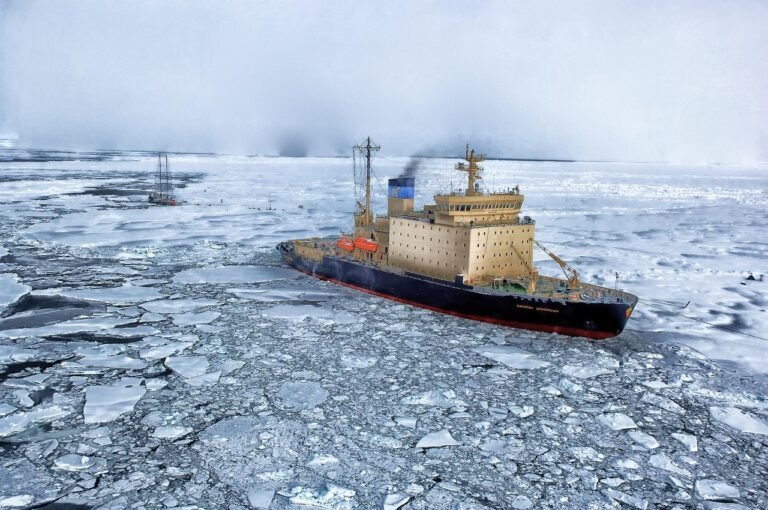Addressing the Urgent Need for Regulation of Black Carbon Emissions from Arctic Shipping
Despite more than a decade of technical work at the International Maritime Organization (IMO), black carbon from Arctic shipping remains largely unregulated, necessitating “immediate and mandatory” action to prevent ‘disastrous’ climate impacts.
In its most recent report titled “On thin ice: Why black carbon demands urgent action”, US-based environmental organization Pacific Environment has highlighted that in spite of the efforts made so far, black carbon—a component of particulate matter (PM) formed by the incomplete combustion of fossil fuels, biomass, and biofuels—remains ‘in limbo’, with only a voluntary resolution and guidance set up.
As noted, this presents a mammoth issue given the rise in Arctic shipping. Per Protection of the Arctic Marine Environment’s (PAME) Arctic Shipping Status Report, the number of individual vessels entering the region increased from 1,298 in 2013 to 1,781 in 2024, while the cumulative distance traveled within these polar waters rose by 108%, from 6.51 million to 12.7 million nautical miles.
As disclosed, commercial fishing vessels represented the highest number of the units sailing these waters, while bulk carriers, icebreakers, and research ships also secured their spot(s) close to the top.
What is more, as the Arctic sea ice continues to melt and retreat, previously impassable waters are opening up new lanes for commercial shipping, extending the navigable season by several months.
That said, this increase in traffic comes with a surge in emissions from vessels burning residual fuels to power their journeys, black carbon especially, with data showing that the Arctic has been warming up three to four times faster than the global average.
“Despite more than a decade and a half of debate, the UN’s maritime shipping body, the IMO, continues to ignore the simple solution: require ships to immediately switch to cleaner fuels when operating in the Arctic. Without mandatory requirements, markets lack the certainty needed to shift fleet operations toward lower black carbon options,” Kay Brown, Arctic policy director, Pacific Environment, stressed.
The Extent of the Issue
The extent of the Arctic shipping footprint was also spotlighted in a May 2025 report, released by the International Council on Clean Transportation (ICCT), which cautioned that the effects of black carbon could have been ‘vastly underestimated.’
According to the study, black carbon emissions in the region have nearly doubled between 2015 and 2021. As informed, a ‘substantial’ share comes from ships traveling to and from EU ports, with EU-regulated units of at least 5,000 GT accounting for 23% of total emissions.
Recommendations for Action
Given the magnitude of the problem, Pacific Environment has made several recommendations to minimize the Arctic climate impact. As divulged in the report and reiterated by numerous bodies, options to slash black carbon emissions could encompass:
- An obligatory switch to cleaner ‘polar’ fuels, such as marine distillates DMA and DMZ;
- Designating sulfur emission control areas (ECAs);
- Crafting (and implementing) international standards on the aromatic content of fuels;
- Creating Arctic and black carbon (or distillate-only) ECAs;
- Mandating the use of diesel particulate filters for ships in/near the Arctic.
Per Pacific Environment’s report, replacing residual fuel with distillate could cut black carbon emissions by 50-80%, while EU-regulated ships over 5,000 GT in the Geographic Arctic, the emissions could be slashed by 16-25%.
The organization has concluded that the IMO’s Pollution Prevention and Response Sub-Committee (PPR 13), set to meet in February 2026, has the ‘unique’ opportunity to curb the acceleration of Arctic warming and reinforce the organization’s core mission: safeguarding the marine environment and the coastal communities that depend on it.

